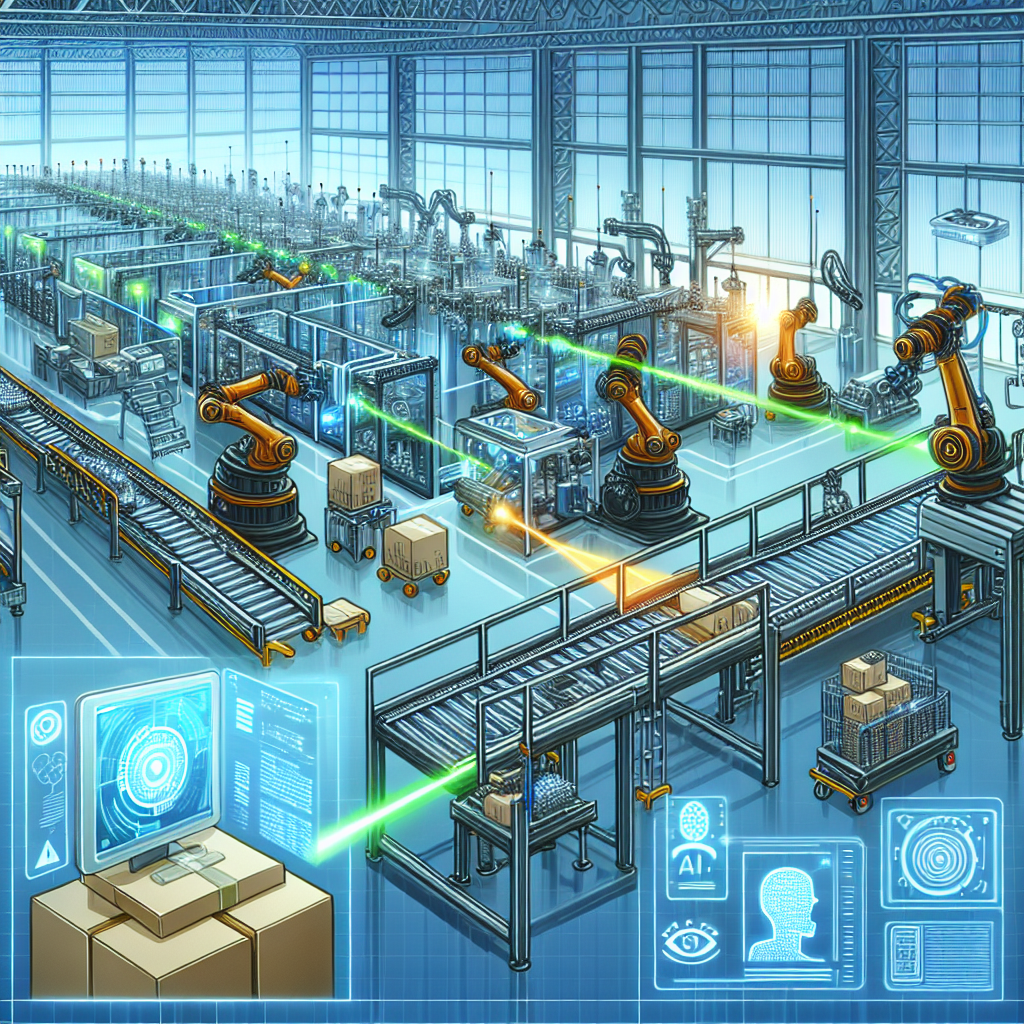In recent years, the implementation of artificial intelligence (AI) in manufacturing processes has been revolutionizing the industry. AI automation has provided numerous benefits, such as increased efficiency, improved quality, and reduced costs. In this article, we will explore the advantages of AI automation in manufacturing and address some frequently asked questions about this technology.
Benefits of AI Automation in Manufacturing Processes
1. Increased Efficiency: One of the primary benefits of AI automation in manufacturing processes is the increased efficiency it provides. AI can analyze large amounts of data in real-time and make decisions faster than human workers. This results in faster production times and reduced downtime, leading to improved overall efficiency in the manufacturing process.
2. Improved Quality: AI automation can also help improve the quality of products by detecting defects and inconsistencies that may be missed by human workers. AI-powered machines can perform quality control checks more accurately and consistently, leading to higher-quality products that meet or exceed customer expectations.
3. Cost Reduction: AI automation can help reduce costs in manufacturing processes by streamlining operations and reducing the need for human labor. By automating repetitive tasks, AI can lower labor costs and increase productivity, leading to cost savings for manufacturers. Additionally, AI can help optimize supply chain management and inventory control, further reducing costs in the manufacturing process.
4. Enhanced Safety: AI automation can also improve safety in manufacturing processes by reducing the risk of human error and accidents. AI-powered machines can perform dangerous tasks that may put human workers at risk, such as handling hazardous materials or operating heavy machinery. By automating these tasks, manufacturers can create a safer work environment for their employees.
5. Predictive Maintenance: AI automation can also help manufacturers implement predictive maintenance strategies to prevent equipment breakdowns and reduce downtime. By analyzing data from sensors and machines in real-time, AI can detect potential issues before they escalate into costly problems. This proactive approach to maintenance can help manufacturers save time and money by avoiding unexpected equipment failures.
Frequently Asked Questions about AI Automation in Manufacturing Processes
1. What types of tasks can be automated using AI in manufacturing processes?
AI automation can be used to automate a wide range of tasks in manufacturing processes, including production scheduling, quality control, inventory management, predictive maintenance, and supply chain optimization. AI-powered machines can perform tasks such as data analysis, decision-making, and machine learning to streamline operations and improve efficiency in manufacturing processes.
2. How can AI automation help improve the quality of products in manufacturing processes?
AI automation can help improve the quality of products in manufacturing processes by detecting defects, inconsistencies, and deviations from specifications. AI-powered machines can perform quality control checks more accurately and consistently than human workers, leading to higher-quality products that meet or exceed customer expectations. By automating quality control processes, manufacturers can ensure that their products are produced to the highest standards.
3. What are the challenges of implementing AI automation in manufacturing processes?
While AI automation offers numerous benefits to manufacturers, there are also challenges associated with its implementation. Some of the challenges include the high cost of implementing AI technology, the need for specialized skills and expertise to develop and maintain AI systems, and concerns about data security and privacy. Manufacturers must also consider the impact of AI automation on their workforce and be prepared to reskill and upskill employees to work alongside AI-powered machines.
4. How can manufacturers ensure the successful implementation of AI automation in their processes?
To ensure the successful implementation of AI automation in manufacturing processes, manufacturers should take a strategic approach to adopting AI technology. This includes conducting a thorough assessment of their current processes and identifying areas where AI automation can add value. Manufacturers should also invest in training and development for their employees to help them adapt to working alongside AI-powered machines. Additionally, manufacturers should prioritize data security and privacy to protect sensitive information and ensure compliance with regulations.
5. What are some examples of successful AI automation in manufacturing processes?
There are many examples of successful AI automation in manufacturing processes across various industries. For example, automotive manufacturers use AI-powered robots to assemble cars more efficiently and accurately. Electronics manufacturers use AI algorithms to optimize production schedules and reduce waste. Food and beverage manufacturers use AI technology to improve quality control and ensure consistency in their products. Overall, AI automation has the potential to revolutionize manufacturing processes and drive innovation in the industry.
In conclusion, AI automation offers numerous benefits to manufacturers, including increased efficiency, improved quality, reduced costs, enhanced safety, and predictive maintenance. By leveraging AI technology, manufacturers can streamline their operations, improve productivity, and stay competitive in today’s rapidly evolving market. As AI continues to advance, manufacturers must embrace this technology to unlock its full potential and drive innovation in their processes.

